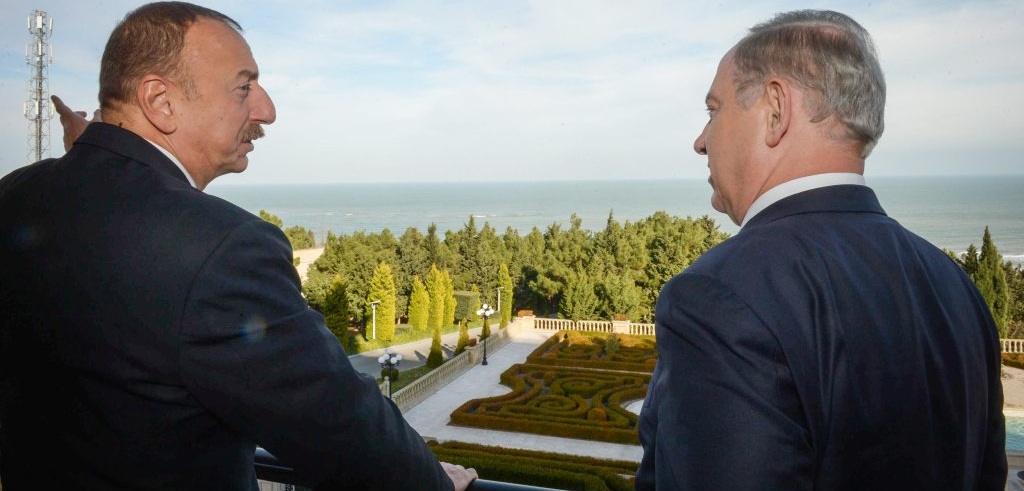
RNA - Israel has persistently sought to engage in partnerships with as many countries as possible in a bid to rid itself of the restrictions the occupying regime has long been grappling with due primarily to regional and international isolation.
Having a full understanding of their geographical limits, Tel Aviv struggles to gain influence in some target regions and so open the door to trade and business relations which in many cases can bring it excessive advantages.
After the collapse of the Soviet Union in the early 1990s, the South Caucasus region and the three newly-independent republics of Armenia, Georgia, and Azerbaijan came to the Tel Aviv regime’s focus. But, meanwhile, the Republic of Azerbaijan, a predominantly Muslim country, found more favor with the Israelis than the other two Armenian countries. What made Azerbaijan more attractive in the eyes of the Israeli strategists can be answered regarding the following factors.
First, Azerbaijan is a Shiite Muslim state. The Israelis know that there is a strong aversion to Tel Aviv among the Muslims because of the occupation of the Palestinian territories since the late 1940s. Despite that, the Israeli leaders strive to establish friendly ties with Muslim countries where they think have a background for enhanced relations with Tel Aviv. The Israeli politicians persistently work to the end of establishing contacts with countries of Muslim majority to remove the widely-spread belief of many Muslims across the world that Tel Aviv is an anti-Muslim regime. Among the three South Caucasian nations, Azerbaijan is the only country with Muslim majority and Israeli leaders went to the great lengths to expand Tel Aviv- Baku relations into field other than economy.
Second, Azerbaijan shares borders with Israeli regime's archenemy. Iran has constantly been a bone in the throat of the Israelis who for years have tried to tighten the noose on the Islamic Republic using the friendly ties with the states with geographical, historical, cultural, and religious bonds to the Shiite Muslim country. Without any doubt, one of the main intentions of the Israeli efforts to expand ties with Azerbaijan is to check the Iranian weight gain in the South Caucasian, as well as Central Asian, republics. Tel Aviv has worked nonstop towards this aim since the day of dissolution of the Soviet Union. This policy is an undetachable part of the Israeli strategy which serves the regime's regional interests. Tel Aviv spares no efforts to realize its goals, including penetration in the intelligence apparatus of Azerbaijan to deal a blow to the Iranian interests in the South Caucasian state, something which should not be underestimated. Over the course of past few years, there were several revelations of the Israeli efforts to hit the Islamic Republic’s security using the Azerbaijani soil. Therefore, reaching the northwestern borders of Iran is another main aim of the Israeli regime’s zeal for better ties with Azerbaijan.
Third, Natural and energy resources present another drive for the Israelis to find Azerbaijan a consequential regional partner. With its geopolitical position favorable for energy exports, Azerbaijan is capable of turning into a major energy exporter. But the Israelis have aims beyond simply procuring oil from Azerbaijan. In fact, they are aware of the cooperation potentials existing between Iran, Azerbaijan, and Russia and wish to foil a regional energy bloc between the three energy producers.
Geopolitical, geostrategic, and geoeconomic importance of Azerbaijan for the Israelis is undeniable. In the past, there were efforts to keep the Tel Aviv-Baku relations on the sly, but today the two parties are not afraid to publicize their high-level ties, something stoking fears of the Russians. Russia is concerned about re-ignition of fighting between Baku and Yerevan, the ally of Moscow, over the disputed Nagorno-Karabakh region, claimed by the two even before the Soviet Union collapsed. The huge Azerbaijani purchases of the Israeli arms to remain prepared in a period described as “armed peace” does not appeal to the Kremlin leaders.
Despite the abovementioned factors, Baku leaders have shown they are adopting a pragmatic strategy in which strategic balance is glaringly apparent. While, on the one hand, the Azerbaijanis boost ties with the Israeli regime, they, on the other hand, bolster a friendly relationship with Iran, especially in the business sector. The Azerbaijani foreign ministry recently published a report on the achievements of the country’s foreign policy in 2017, highlighting the growing levels of cooperation at all levels between Baku and Tehran. But it must be seen if Baku, without damaging close partnership with Tehran, can continue moving towards Tel Aviv. This looks hardly feasible with regard to the Islamic Republic’s extreme sensitivity to the Israeli regime's influence next to its northwestern borders.
Source: Alwaght
847/940